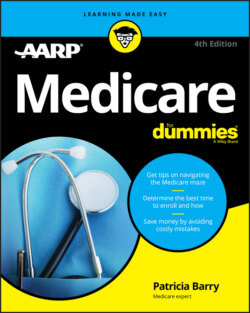Читать книгу Medicare For Dummies - Barry Patricia, Patricia Barry - Страница 46
If you’re enrolled in traditional Medicare
ОглавлениеIf you need to stay for a long period in the hospital for one spell of illness that’s known as a benefit period, Medicare will cover 100 percent of your nursing and living costs for the first 60 days after you’ve met a deductible. For days 61 to 90, you’re required to pay a daily co-pay. (I explain these costs in Chapter 3, and I go into detail about benefit periods in Chapter 14.)
No limit caps the number of benefit periods you can have, provided that 60 days have elapsed between each one. But if you still need to be in the hospital longer than 90 days in any one benefit period, you must either pay the full cost yourself or draw on up to 60 more days for which you pay hefty daily co-pays. These 60 days are called lifetime reserve days. You can use as many as you want or save some in case you need them in the future. But as the phrase implies, when you’ve used them, they’re gone for good.
However, all Medigap supplemental insurance policies (explained in Chapter 4) extend Part A hospital coverage for up to an additional 365 days in your lifetime after Medicare benefits are exhausted. And most Medigap policies pay for the Part A hospital deductible, too. If you’re enrolled in Medicaid (state medical assistance), this program usually covers the co-pays for lifetime reserve days.
